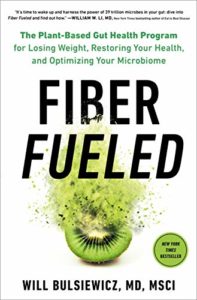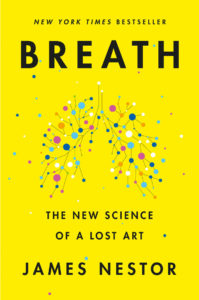For years, anxiety controlled my life. This wasn’t the sweaty palm and dry mouth before a speech kind of anxiety: this was going into shock and pass out in the middle of the hallway kind of anxiety. There were debilitating panic attacks that left me fearing for my life. I never knew when they were going to happen, it took me months before I realized that I wasn’t about to have a heart attack or utterly lose my mind. After a panic attack, an inconsolable flood of tears would ensue; I’d be left quivering and spent. There are not many things out there that can shake you to the core in the same way as a panic attack.
My panic-filled episodes continued to grow until they peaked in college. I did what I thought to be sensible and went to the doctor’s office to talk about treatment options. There was no discussion about my lifestyle, nor any discussion into alternative therapies. However, she did prescribe me an anti-anxiety medication. I happily filled this prescription and felt assured my worries were over. This bliss was short-lived, and instead of being forever free from anxiety, I found myself to be in a sedated state of mind. The root of the problem still felt unresolved. Now I know plenty of people who swear by prescription drugs. For me, this wasn’t the case. So my search for solutions continued.
The Gut-Wrenching Truth
I determined that there must have been an underlying reason I was experiencing anxiety in the first place, and so I set about to try and understand the root cause. Now I experienced anxiety in tandem with a distressed gut. Medical professionals told me that my IBS (Irritable Bowel Syndrome) was due to my anxiety. What if it was the other way around? What if in fact, my gut was exacerbating my anxiety? I have spent the last five years researching into the human microbiome, and what I have learned has changed my life.
I just recently finished the book Fiber Fueled by Dr. Will Bulsiewicz, a gastroenterologist and an expert on the human gut. He describes the health of our gut as being indicative of our overall health. The greater our diversity of plant fiber, the greater our diversity of helpful gut microbes.

The connection between our gut and our brain is an area of study that is currently receiving a tremendous amount of attention. Your microbiome (the bacteria primarily in your large intestine) is in constant communication with your brain via your vagus nerve. If you have inflammation in your gut, your brain will be implicated. You’ll experience changes in your mood and your cognition. In his book, Dr. Bulsiewicz details how our five axes of health are all intertwined with our microbiome. Dr. B explains how human cognition, hormones, immunity, metabolism, and gene expression are greatly influenced by the gut microbes.
How To Optimize Your Gut?
What is the best way to optimize your gut microbiome? Dr. Bulsiewicz suggests eating a minimum of 90% plant-based foods, ideally 100%. Not just any plant products will do, but plants found in their whole food forms. Fiber (found in plants) is the beneficial bacteria’s favorite food; as the title suggests, being fiber fueled will optimize your digestion and therefore optimize your health. For my own part, I drink a daily psyllium husk prebiotic fiber supplement and follow a 100% whole foods plant-based diet. The emphasis is on plant diversity. The greater variety of plants you eat (in the form of the whole food) the greater your microbiome diversity will be as well. Resulting in a healthier you.

Other Sources for Gut Self-Educating
Another must-read for those interested in learning more about our microbiome is the book Gut: The Inside Story of Our Body’s Most Underrated Organ by Giulia Enders.
For podcast lovers, Rich Roll has just released a podcast called Mastering the Microbiome: A Master Class in Gut Health.
Deliciously Ella produces wonderful podcasts that discuss the microbiome with many different experts in the field. Try this episode and this one. .
Take a Breather

I didn’t stop with the changes to my diet; I continued to look into a plethora of alternative methods. That’s when I discovered the 4-7-8 breathing technique. You breathe in for four full seconds, hold it in for seven full seconds, and breathe out for eight. This method calms your sympathetic nervous system and eases your body out of a flight or fight response. Through this breathing technique alone I have been able to shut down all oncoming panic attacks, as a result, I haven’t had a panic attack in three years.
This phenomenon was so drastic I had to understand more into the science of why this worked. It wasn’t until this year that I would read the book Breath by James Nester about how our breathing affects our physiology.

In his book, Nester discusses how we can actually trigger our own anxiety with just breathing. Taking in a fast stream of shallow breaths can trigger our sympathetic nervous systems into a flight or fight response. Mr. Nester dives deeper into the subject of breathing that goes beyond mood control, yet related to our overall well-being. At the end of his book, he discusses a multitude of breathing exercises and what we can do to take back our health with the simple power of breath.
What to Take Away
I am by no means a qualified physician. I am simply a woman wildly passionate about my own well-being, spurred to combat my anxiety and ill health by any means necessary. I encourage you to look into the science for yourself to gain a fuller picture. Since implementing these strategies, my anxiety has decreased dramatically. I can say with absolute certainty that my mental health is the best it’s ever been. It has been years since I’ve had a panic attack, and my general anxiety is diminishing. Going forward with my well-being journey, I would like to see a therapist, and give mindful meditation proper attention as well.
Get more like this—Sign up for our daily inspirational newsletter for exclusive content!
__
Photo: Unsplash





